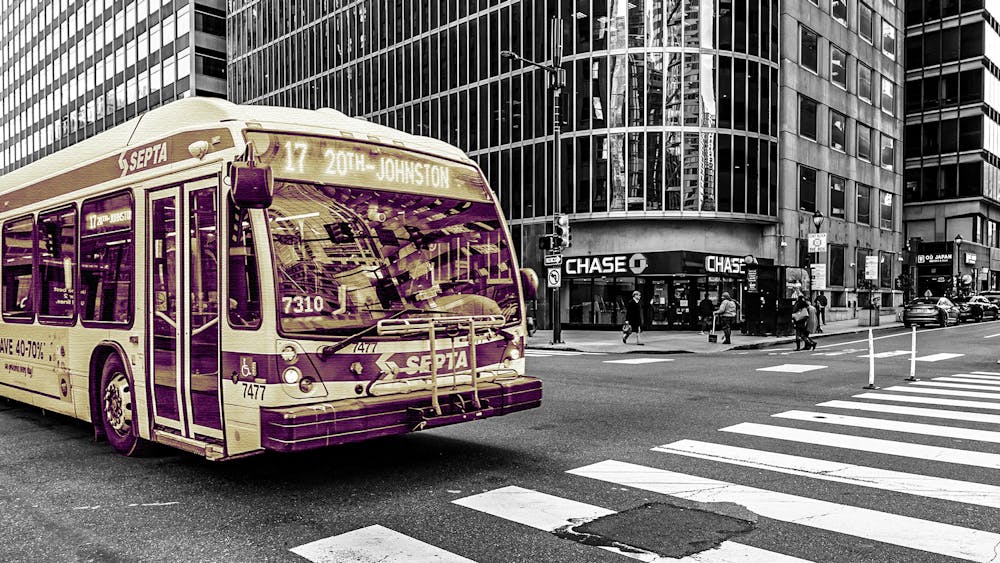As college students, we all depend on SEPTA. But can SEPTA workers depend on fair treatment? Recent union negotiations suggest otherwise.
SEPTA workers have reached a tentative agreement for a new contract between SEPTA and the Transit Workers Union Local 234, the union that represents SEPTA. The TWU is the largest SEPTA union, consisting of around 5000 members. It had previously authorized a strike if negotiations did not reach a fruitful conclusion. The agreement reached was decisive to keep blood flowing through the veins of Philadelphia.
Negotiations stalled in part because there is so much on the table for both management and the workers. On management's side, from the lack of staffing to a lack of cash, SEPTA wasn’t in a great position to grant much to workers. But the workers had a lot on the table too: From low wages to forced overtime, workers had much to bargain for. And yet, a beneficial agreement was reached. What do the workers’ efforts say about the state of labor relations today?
While the agreement between SEPTA and Local 234 is “essentially a work in progress,” and still must be ratified by the union members, it has staved off a strike that would affect thousands using public transit. This tentative agreement has included wage increases, signing bonuses for active union members and a forced overtime work limit.
Many of the issues SEPTA is facing have to do with inadequate funding and staffing shortages: “Without additional state and local funding, SEPTA will have no choice but to implement significant service cuts of up to 20% and/or fare increases of up to 31%.” Local 234 counters that the only way to fix staffing shortages is to increase wages and advance working conditions, which is precisely what will attract more workers to SEPTA.
By all appearances, this agreement looks like a win for Local 234, as it hits almost all the major points being bargained for.
TWU workers were demanding wage increases and cost of living allowances, a reduction in forced overtime caused by staffing shortages, and maintenance done on new vehicles “in–house” as opposed to being subcontracted. TWU was also pushing for increased safety measures. While always a concern of workers, the safety issue came to a head when Bernard Gribbin, a bus driver at SEPTA for over a decade, was shot six times and killed by a rider right as negotiations were wrapping up.
This tragic incident raises continued questions as to how to improve safety for both SEPTA workers and the public. Union President Brian Pollit states about the new agreement that “many of our concerns related to safety and security will need to be addressed in later agreements.”
How specifically is increased safety going to take place? SEPTA CEO Leslie Richards states, “We want to work together closer than ever to make sure that everybody is safe—all employees, all riders.”
For those using the SEPTA system, nonviolent infractions, like harassment, marijuana use, and urination, have contributed to a rise in fear. Many but not all these infractions have seen a rise in recent years. SEPTA currently handles them through the SCOPE program and the Transit Police.
SCOPE is a project by SEPTA addressing the growing unhoused population in Philadelphia: “More than a thousand individuals experience homelessness in Philadelphia and the surrounding counties. Due to this large–scale public health crisis, many of these individuals end up seeking shelter on SEPTA’s vehicles and in our stations.” This can contribute to a decrease in ridership as one of the contributing factors to fear. Of course, this is not SEPTA’s fault, but is indicative of a much broader socioeconomic inequality blighting Philadelphia. SCOPE is a project to help address this in a humane way.
From the United Auto Workers strike to the Philadelphia Orchestra’s recent labor deal to Penn’s graduate student union, GET–UP, filing for unionization, the TWU Local 234 recent near strike experience is part of a larger unionization and strike wave hitting the city and nation. So, what does the future look like?
It is commonly lamented that the strength that unions once held is no more, and a strong working class that wins fights for fair wages, benefits, and safe working conditions is not achievable.
But SEPTA workers (and many others) are here to stare in the face of this gloom. In fact, it seems necessary to reject failed union nihilism and demand accountability from companies, despite almost certain obstacles along the way.
“The nature of work has changed so drastically in the past few years,” says Jason Sockin, a postdoctoral scholar at the Institute of Labor Economics (IZA) in Berlin. He notes that the pandemic contributed to worker concerns about safety and workplace conditions. As a result, many people started seeking out remote work, greater work–life balance, and better amenities, making it difficult for employers to fill positions.
These shifts in job preferences, combined with rising inequality and inflation, made workers feel “compelled to ask for steeper gains in wages and benefits. I think you have a real catalyst for workers to band together,” Sockin says.
Sockin added that the rise in high–profile collective action, including the Writers Guild of America or the United Auto Workers strikes, are making non–unionized workers see the impact that striking can have on achieving higher pay or better working conditions. “Success is infectious,” he says.
Following this rise in strikes and contract renegotiations by workers, it is logical that SEPTA followed suit. “We Must and We Will” is the TWU’s slogan, providing a mantra for workers engaged in collective bargaining.
This optimism is a breath of fresh air for the labor movement, and it will be interesting to see how workers fare in the coming year. While the verdict for SEPTA’s safety concerns remains to be seen, it is clear that workers have been effective in fighting for fair treatment.

